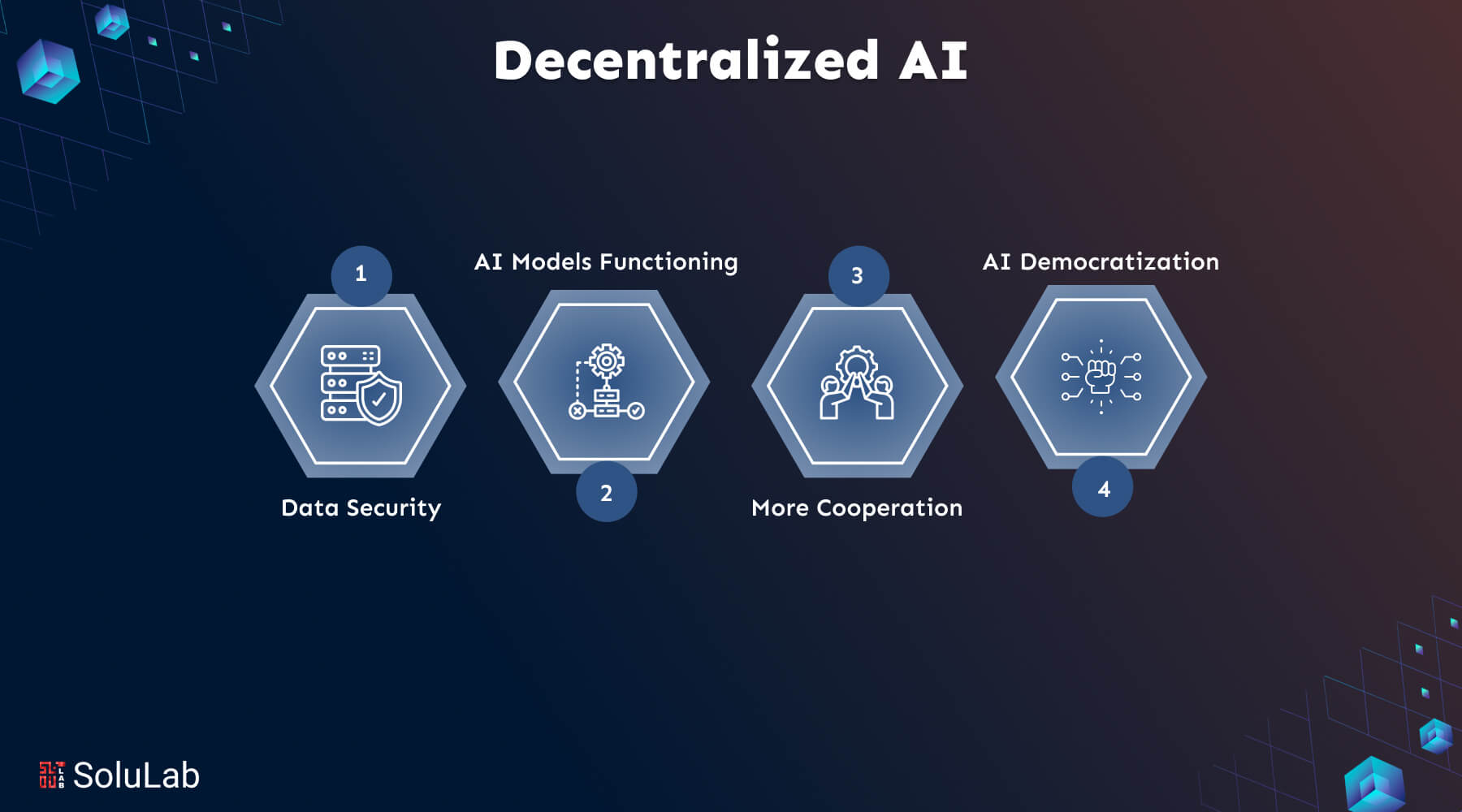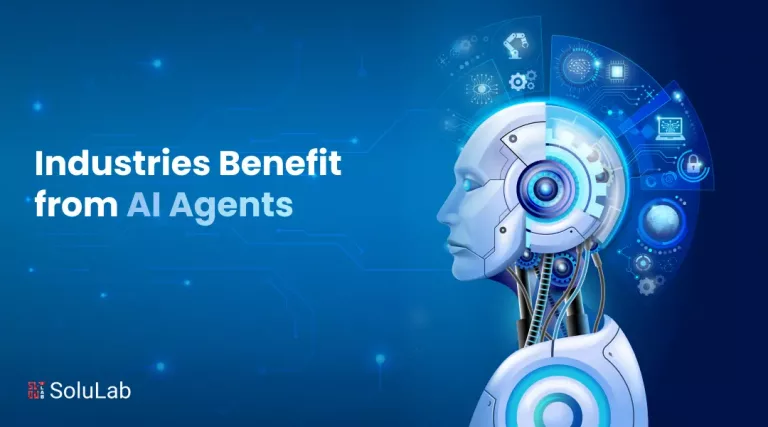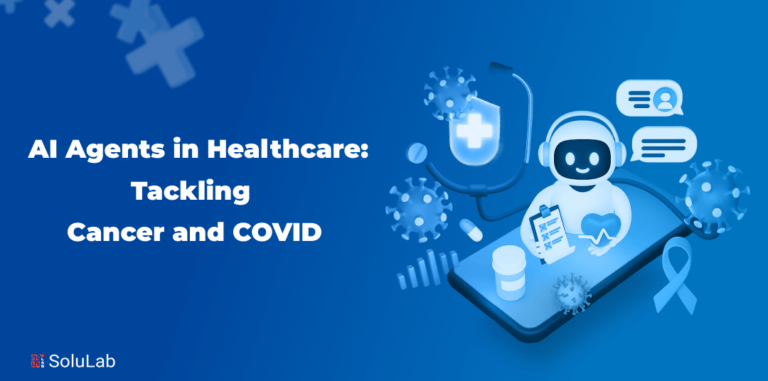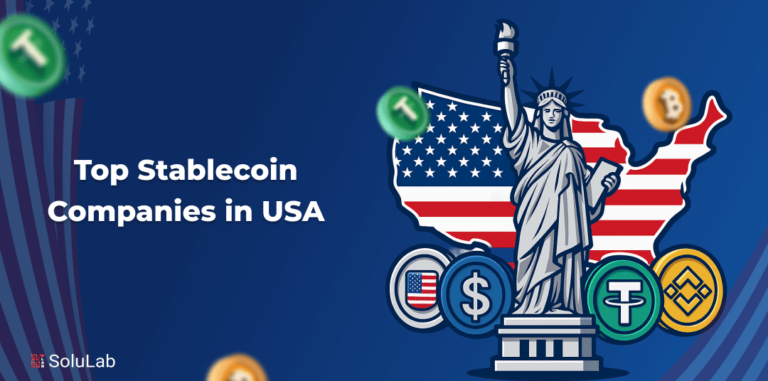
AI is growing fast, but most of it is still controlled by a few large companies. That means less privacy, limited access, and little control for everyday users.
However, Decentralized AI is a new way of building and using AI tools, without relying on central servers or big corporations. Instead, it uses blockchain and peer-to-peer networks to make AI more open, secure, and fair.
The broader blockchain‑AI market (AI + blockchain) is projected to grow from $1.3 billion (2023) to $20.5 billion by 2033, at a CAGR of ~32.6%. In this guide, you’ll learn what decentralized AI is, how it works, and why it matters, its benefits, and more. Let’s get started!
What is Decentralized AI?
Decentralized AI is a type of artificial intelligence that works without relying on a single central server or authority. Instead of storing and processing all data in one place, it uses blockchain technology, peer-to-peer networks, or edge computing to distribute data and decision-making across multiple devices or nodes.
For example, supply chain management has been enhanced through the blockchain-based platform known as Fetch.ai through the use of AI agents to decentralize supply chain decision-making by 25%. Similarly, since Data is distributed through Ocean Protocol, users can retain ownership of the data that they submit, yet they earn rewards from its use. By the numbers, increasing interest in transparent AI and advancing privacy continued to drive growth in the international decentralized AI market; the CAGR is predicted to be 40% between 2023 and 2030.
What is the Need for Decentralized AI?
For a number of reasons, decentralized AI is growing in significance in the tech industry.
- Distributing data over multiple points lowers the chance of compromised datasets, improving data security and privacy. In delicate areas like healthcare, finance, and personal data, this is particularly crucial.
- Decentralized AI also encourages creativity and teamwork by facilitating resource sharing and peer-to-peer interactions. The creation of AI models can be accelerated with this method, opening up new avenues for resolving challenging issues.
- Additionally, it encourages equity and inclusivity by enabling smaller businesses and individuals to take part in AI development and decision-making. While addressing important issues, decentralized AI supports creativity, teamwork, equity, and inclusivity.
Benefits of Decentralized AI
A decentralized AI has several benefits over traditional centralized systems, and it can change creation and entire sectors. Here are a few of its main benefits.
1. Enhanced Data Privacy: Data remains on local devices or within a distributed network, reducing the need to share sensitive information with central servers. This helps protect user privacy and minimizes the risk of data breaches.
2. Improved Security: Using blockchain and encryption, decentralized AI ensures secure data sharing and processing. It’s more resistant to hacking, tampering, and unauthorized access compared to centralized systems.
3. No Single Point of Failure: Since there’s no central server, the system remains functional even if one or more nodes fail. This increases reliability and system uptime across networks.
4. User Control and Transparency: Users have more control over how their data is used and can audit AI decisions. This builds trust and allows for greater transparency in how algorithms operate.
5. Scalability and Flexibility: Decentralized AI can scale across many devices and locations without overloading a central server. It supports flexible deployments, especially for IoT and edge computing.
6. Cost Efficiency: By distributing processing power, decentralized AI can reduce infrastructure and data transfer costs. It also eliminates the need for expensive centralized data centers.
7. Faster Local Decision Making: Devices can process data locally, reducing the time needed to send information to the cloud. This enables quicker decisions in real-time applications.
How is Blockchain Supporting Decentralized AI?
Blockchain technologies are an essential component of this transformation. It offers a framework that is both safe and transparent, allowing for the management of data and the making of decisions. Are the following most important characteristics:
- The network is responsible for the distribution of data which helps to reduce the likelihood of illegal access failure.
- Decentralized AI promotes open soul development and provides opportunities for collaborative training, hence reducing dependency on central entities.
- The systems can customize themselves on demand, which has the potential to challenge the scalability of technology giants.
- Permissionless access is provided by decentralized artificial intelligence, which enables individuals and start-ups to participate in the creation of AI and the decision-making process. Decision-making process.
Technologies Used in Decentralized AI
Decentralized AI combines multiple advanced technologies to enable secure, distributed, and intelligent systems without relying on centralized control. Here are the key technologies that power it:
- Blockchain Technology: Blockchain provides a secure and transparent ledger for storing and sharing AI model updates and data. It ensures immutability, data integrity, and decentralized consensus, making it ideal for trustless AI collaboration.
- Edge Computing: Edge computing processes data closer to the source (like smartphones or IoT devices) instead of sending it to a central server. This reduces latency, enhances privacy, and enables real-time AI decision-making on local devices.
- Federated Learning: Federated learning allows multiple devices to train AI models locally and share only the model updates, not raw data. This keeps data private while still improving the global model across a decentralized network.
- Smart Contracts: Smart contracts automate processes and enforce rules without human intervention. In decentralized AI, they can handle payments, data exchange agreements, and access control securely and transparently.
- Distributed Ledger Technology (DLT): DLT extends blockchain by enabling secure and decentralized storage of data and transactions across many nodes. It’s crucial for synchronizing AI operations and maintaining a reliable record of actions.
Decentralized AI in Various Industries
1. Blockchain and Web3 AI
Using decentralized AI to develop web3, places a strong emphasis on user ownership, decentralization, and increased privacy because it makes it possible for smarter, more independent apps to function without centralized control, decentralised AI is essential to this ecosystem. It can fuel AI-driven smart contracts, and foreign tension, which eliminate the need for middlemen and boost operational efficiency by automatically executing transactions based on predetermined circumstances.
2. Healthcare
Decentralized AI has a lot of promise to improve patient care in the healthcare sector while upholding stringent data privacy regulations. Recently AI systems, train models using medical data for several hospitals and research facilities by using Federated learning, which eliminates the need to ever move the data out of sight. This allows artificial intelligence to learn abroad and various data sets while guaranteeing data protection laws like HIPAA. As a result, patients may benefit from more precise diagnoses, individual treatment, regimens, and predictive analytics.
3. Edge Computing
Instead, depending on centralized cloud infrastructure, its computing process data, which is closer to the source like servers or internet of devices. As decentralized, AI enables direct deployment of AI models on edge devices, facilitating data processing in real-time and decision-making, it is especially well suited for edge computing. This is essential for applications like industrial automation, smart cities, and driverless cars where latency is a major concern. Since sensitive data handled at the edge doesn’t have to be sent to the central server. Decentralized AI also guarantees that it stays private and secure.
4. Supply Chain
Decentralized AI is also having a big impact on supply chain management. Decently AI systems that integrate Blockchain and AI can enhance demand forecast, offer, real-time visibility, and optimize inventory levels into the flow of goods. While AI evaluates supply chain data to forecast disruption, provide alternate routes, and optimize logistics, Blockchain guarantees that the data is transparent, unchangeable, and available to all stakeholders. This lowers the possibility of fraud and fake items while also increasing efficiency.
5. Financial Systems
Decentralized AI can be quite helpful in identifying fraudulent activity in financial systems. AI algorithms can detect Imus patterns that indicate possible fraud by evaluating transrectal time in real time. Overall, trust in the economic system is increased by the decentralized nature, which guarantees transparency and reduces the possibility of manipulation with detection systems.
The Final Word
Decentralized AI is changing how we think about technology by giving more control to users instead of big companies. It combines the power of AI with blockchain to create smarter, safer, and more open systems. For beginners, it might seem complex, but at its core, it’s about building trust, privacy, and fairness.
As this space grows, it will unlock new ways to use AI without depending on central servers. Whether you’re a tech lover or just curious, learning about decentralized AI now can help you stay ahead.
InfuseNet partnered with SoluLab to simplify complex AI model integration and create an intuitive Flow interface for building smart applications. SoluLab engineered a secure, drag-and-drop platform that connects over 80 data sources and fine-tunes models using private data. The result? Improved workflows, smarter decisions, and scalable, secure AI solutions.
SoluLab, a top AI development company in the USA, can help you build powerful AI solutions from concept to launch. Contact us today!
FAQs
1. How is Decentralized AI different from traditional AI?
Traditional AI is typically controlled by a single entity (like a company or cloud provider), whereas decentralized AI operates on a network of independent nodes. This reduces single points of failure, increases privacy, and promotes data ownership by users.
2. How does blockchain support Decentralized AI?
Blockchain ensures that AI model training, data sharing, and decision-making processes are transparent, traceable, and tamper-proof. Smart contracts can automate rules for data usage and model execution across multiple parties.
3. Can small businesses or startups adopt Decentralized AI?
Yes! Especially with emerging platforms that offer plug-and-play decentralized AI solutions. However, the feasibility depends on your use case, technical capabilities, and data sensitivity.
4. Is Decentralized AI ready for large-scale enterprise use?
It’s getting there. While decentralized AI is still evolving, many enterprises are piloting it in areas like healthcare diagnostics, supply chain logistics, and fintech risk modeling. As standards mature and platforms become more user-friendly, adoption at scale is becoming more practical.
5. Is Decentralized AI the future of artificial intelligence?
It’s a growing frontier. As concerns around data privacy, AI monopolies, and algorithmic bias rise, decentralized AI is seen as a critical piece of the future AI infrastructure, especially in Web3, IoT, and privacy-first applications.






